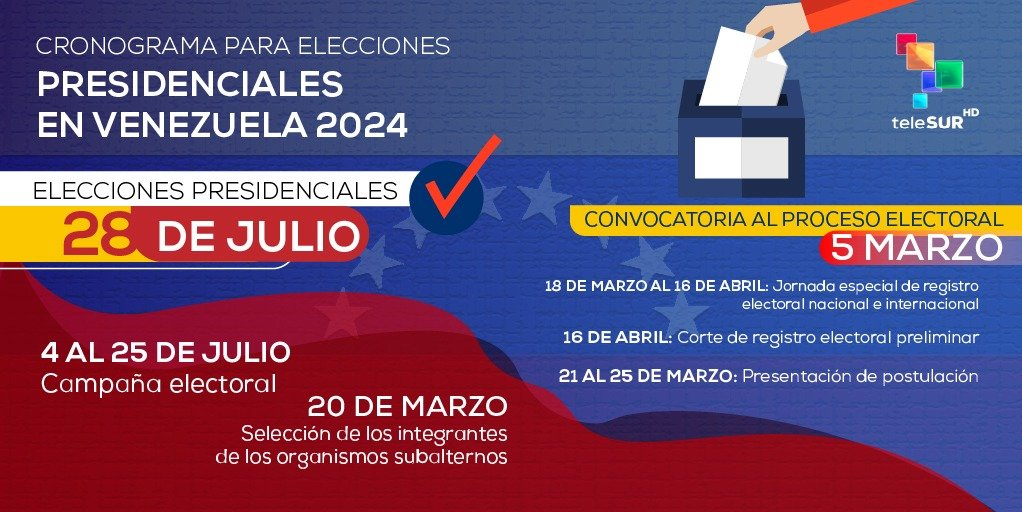
By Roberto Morejón
Elections in Venezuela attract the frenetic attention of the hegemonic press, from the speculation of whether they would be held and the search at all costs for an opponent to face the candidate of Chavismo.
In view of the elections scheduled for 2024, conjectures and falsehoods were woven, which do not seem to be contained, not even before the announcement of the National Electoral Council regarding a precise date for the presidential elections.
In fact, Venezuelans already know that the expected turnout at the polls will be on July 28, the birthday of the Bolivarian leader Hugo Chávez, the great inspirer of the country's libertarian aspirations.
Chavez, who won several times at the polls, set a guideline in the South American nation, continued by his followers, although they, like him, had to face defamatory campaigns.
This is what is happening now, hours after announcing the date of July 28, in compliance with one of the agreements between the government and the most radical opposition.
It happens that the United States and the most recalcitrant say they are irritated because the figure of their predilection, María Corina Machado, is disqualified from holding public office for 15 years.
As they did before with Juan Guaidó, in the White House and in the U.S. Congress they pretend that Venezuelans assume Machado as their own, in spite of her scabrous trajectory.
From a well-to-do family, together with fugitive Leopoldo López, she promoted violent protests in Venezuela, where she even expressed that it would not be possible to achieve a return to legality without resorting to force.
In view of Machado's disqualification, Venezuela threatened to reimpose sanctions on the oil and gas sector next April, after partially suspending them, as it did with the state-owned gold mining company.
Dissatisfied with the above, the government of Joseph Biden extended for one year the declaration of national emergency on Venezuela, for what it calls a threat to its security and foreign policy.
It was a new sign of hostility that joins the arsenal of sanctions that have affected the standard of living of Venezuelans, although they did not divert the country from its independent and sovereign course.
The United States, the European Union and the corporate press should leave Venezuelans alone so that they can decide at the ballot box which candidate they prefer, without external pressure.

